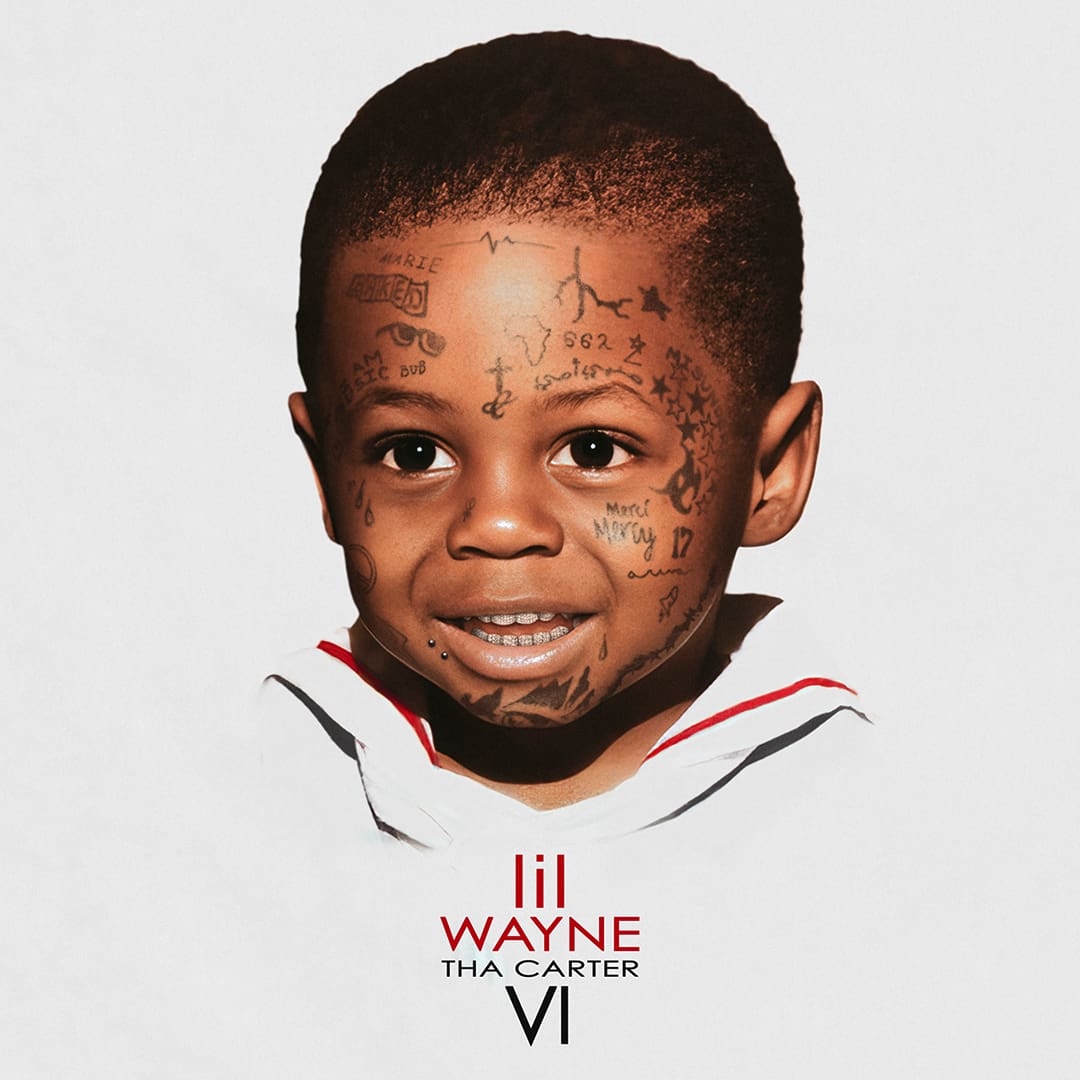Lil Wayne
Tha Carter VI
YOUNG MONEY/REPUBLIC
When we think of the phrase “serial killer,” it’s John Wayne Gacy clowns and Sons of Sam that dance before our eyes. In my mind, however, it’s Lil Wayne who’s the truest of all killers, one whose menacing nasal raps and raging rags-to-immense-riches witticisms—as detailed on 2004’s Tha Carter onward—have created the stoniest of hip-hop soap operas in six chapters. These Carters also happen to represent the very best of what Lil Wayne commits to tape. Not that Free Wheezy and Funeral weren’t strong. They were. They just weren’t protean in the fashion of the Carter series.
Upholding his fascination with the crunch and snap of shiny alt-rock, Tha Carter VI welcomes skinny glam-metal rock-rapper MGK morosely clouding out through “Alone in the Studio with My Gun,” along with U2’s Bono booming and windily careening beside Weezy on the shockingly emotional ballad “The Days.” Still, nothing on the VI rock tip cuts as deeply and melodically as does “Island Holiday.” More than mere interpolation, Wayne’s “Island” takes liberally from Weezer’s “Island in the Sun” and pop-rocks its way into propositioning its female lead while the song’s subject seeks help with his own maturity: “Just got paid, where’s my shades?... Just got an acting coach to help me act my age.” What? Then again, Weezy doesn’t need guests to express his desires to rock out. On “If I Played Guitar,” a jilted Wayne sing-speaks “I should use that bridge you sold me to get over you” in order to move on and keep the Flying V handy.
Along with offering yearning tributes to his beloved New Orleans home on the growly “Banned from NO,” the slurred-heavily, funeral-brassy “Flex Up,” and “Cotton Candy” with 2 Chainz, Wayne continues to troll the country funk of his southern borders with “Sharks” and hiccuping guests Jelly Roll and Big Sean. All of this is great, but not Carter great; not until Wayne’s wide, howling, gut-hurt vocals approach the operatic roar of fellow rapper Andrea Bocelli throughout “Maria” and Wayne’s familial tale of woe involving his folks’ domestic violence. That same opera grandeur guides a church choir’s backing throughout “Welcome to tha Carter,” with Wayne punctuating his origin story’s rap with more percussive hits and verbal paradiddles than a Super Ball in a washing machine.
And the holy hits keep coming as Wayne peers into his crystal ball, to see his role within the rap game, past and future, on “Written History,” and comes up an Ali-level champ, what with borrowing the boxer’s speech from his 1974 master class in whooping ass and taking names. If we’re looking at Tha Carter VI’s place in Weezy history, it ranks in the top three of Wayne victories. Savor that.







